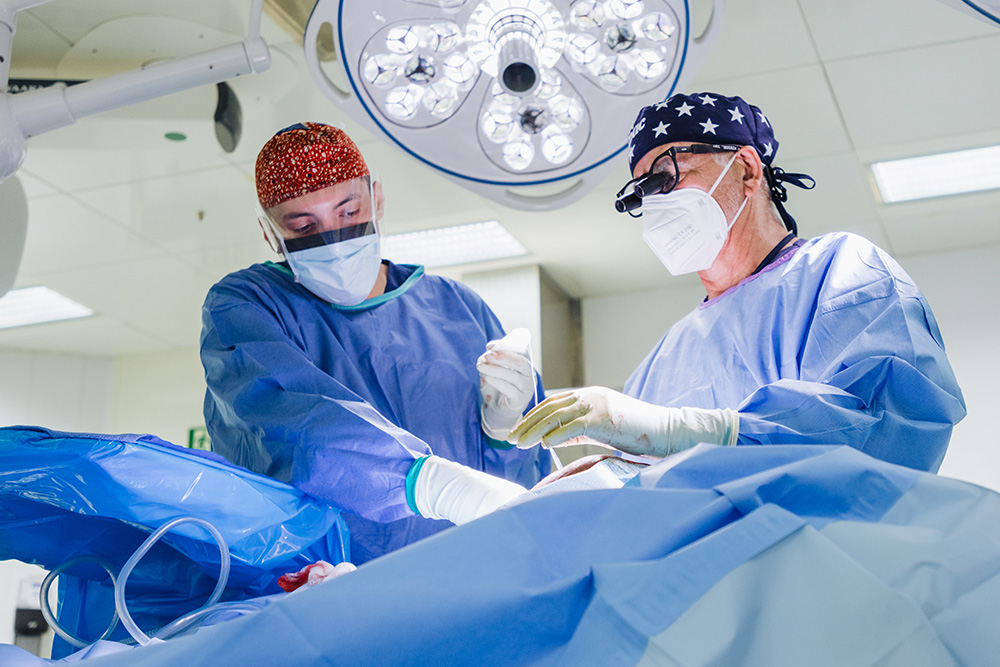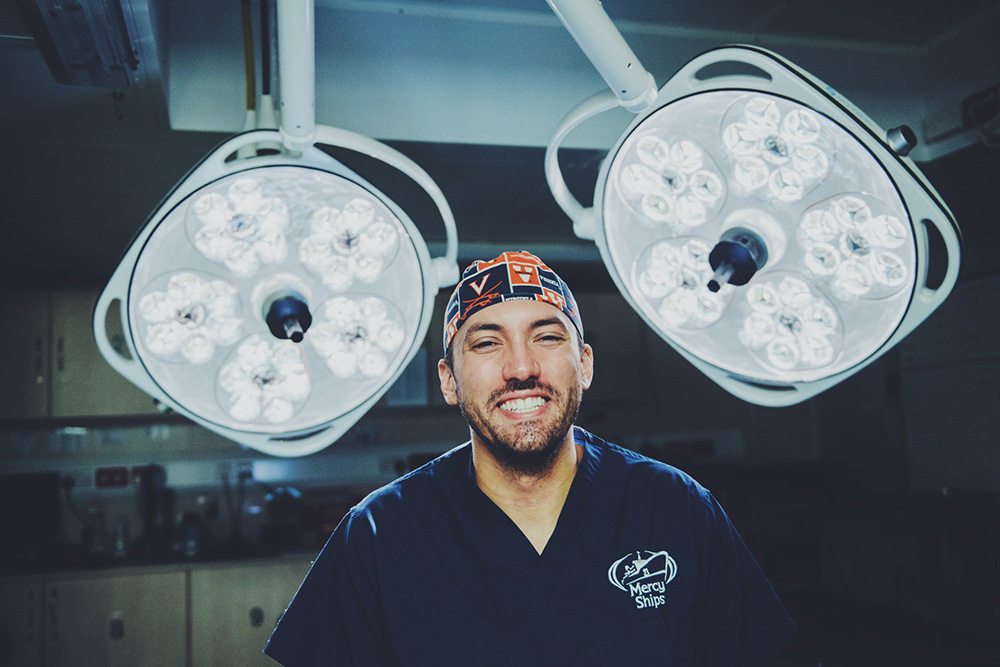
Tangible Hope
March 2011. I step off the plane, onto the tarmac, and into a wall of oppressive West African heat.
"One by one, day after day, patients are wheeled into the OR: with disfiguring facial tumors that slowly suffocate them; with blinding cataracts and severely bowed legs; with congenital malformations and old, untreated burns that contract and immobilize their limbs."
-Seth McElroy, Mercy Ships volunteer and CNL alumnus
Even at midnight, the temperature and humidity feel like a heavy blanket, snuffing out what little energy I have left after two days of travel. After a speedboat ride through the dark, I arrive at my home for the next year: a massive ship called the Africa Mercy that had just docked in Freetown, Sierra Leone, where it would provide free surgeries to people for whom such care is usually out of reach.
Sierra Leone is a country of 8.4 million where there are only five licensed surgeons. Switzerland, a country with only a slightly larger population, has more than 4,000.
As an administrative assistant in the operating room (OR), I see, first-hand, the result of this inaccessible care. One by one, day after day, patients are wheeled into the OR: with disfiguring facial tumors that slowly suffocate them; with blinding cataracts and severely bowed legs; with congenital malformations and old, untreated burns that contract and immobilize their limbs. Long-time Mercy Ships volunteer surgeon Gary Parker once said that “for hope to be credible in the future, it must be tangible in the present.” These patients enter the OR looking for tangible hope. Most days, they find it.

"These patients enter the OR looking for tangible hope. Most days, they find it."
UVA Health nurse and Mercy Ships volunteer Seth McElroy (MSN ’17)
This is where I first see nurses’ true work and majesty, which is so much more than changing dressings, giving medication, and taking vital signs. The compassion they show, the way they quickly organize chaos and restructure plans when priorities shift, the patience they summon to calm a screaming child, their offering of hope.
September 2023. Twelve years later, I am on a speedboat again, cutting through the humid night air, bound for the port in Freetown. I am back in Sierra Leone, but this time I’m a nurse.
In fact, this is my third trip to West Africa as a nurse. I’m aboard the gleaming Global Mercy, the world’s largest non-government hospital ship, and am amazed at the expanse and sophistication of the facilities. But it’s still the familiar floating city and my work—as the OR’s reconstructive plastics team leader—is much the same, too.
Today I care for a child with a burn contracture, common in places where cooking over open flames is the norm, who had been accidentally maimed by a splash of hot oil three years ago. His right hand, now healed, is badly scarred, the fingers fused to the palm and a web of skin that pulls the wrist down to the forearm. After two hours of surgery, the patient heads to the recovery room with five clearly defined fingers and, I think, too, tangible hope.


